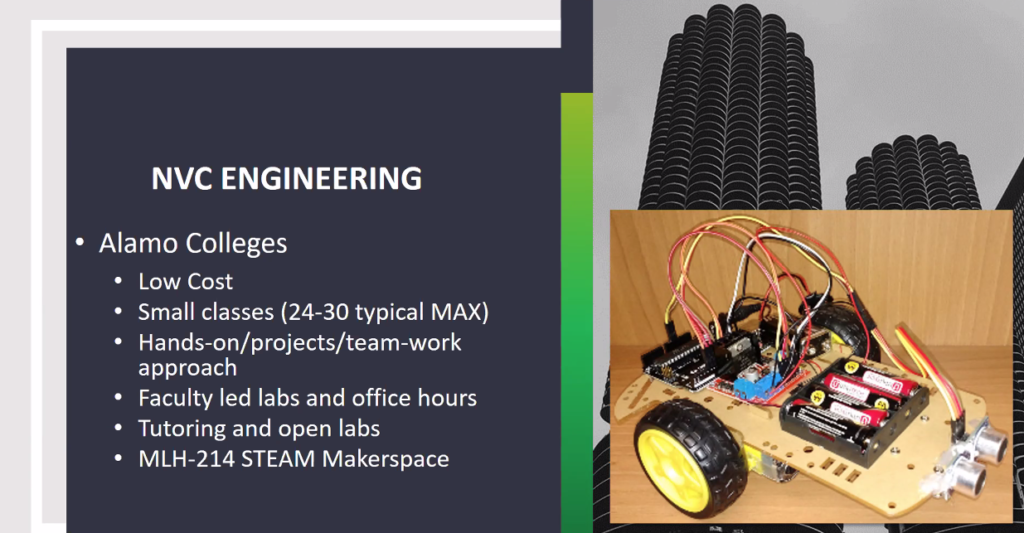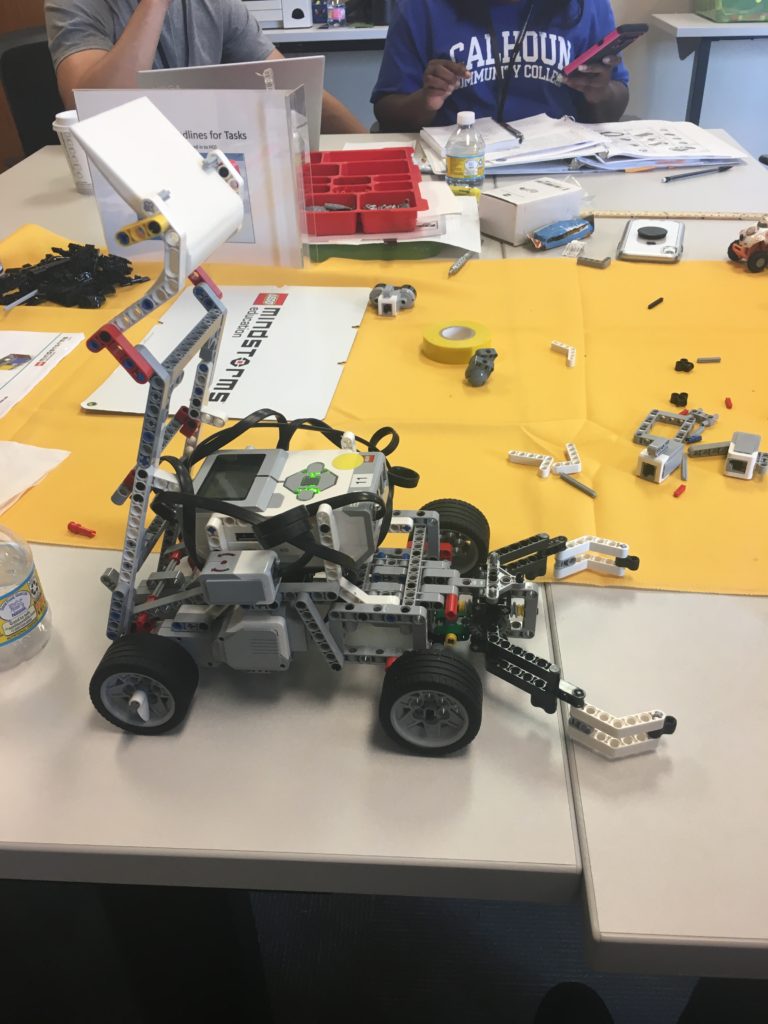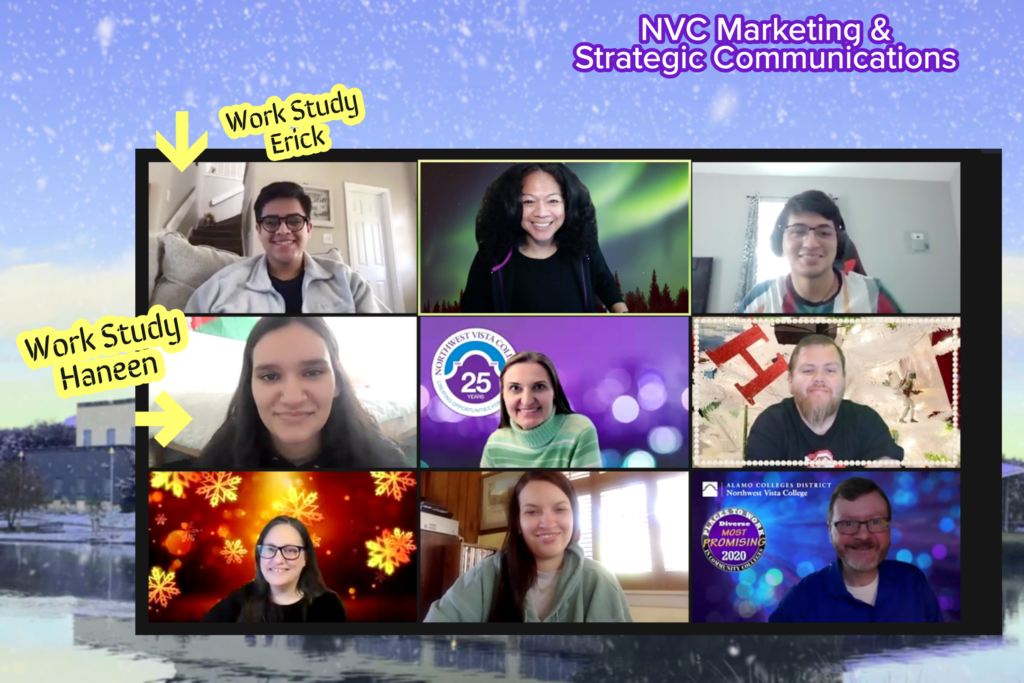Congratulations to several Northwest Vista College students for their achievements.
NVC Music Students
NVC singers recently participated in the 2021 South Texas NATS Chapter Auditions. Dylan Ramirez took home the First Place in Lower College Musical Theater and Elizabeth Potts received Second Place in Upper College Musical Theater.
“What a fantastic accomplishment! I am so proud of their unlimited effort, putting in extra hours of rehearsing and showing incredible patience in recording their videos and reviewing with me. Again, Congratulations!” said Dr. Minkyung Lee, NVC Assistant Professor of Voice/Director of Choral Activities.
Pharmacy Scholarship
Jessica Remmers was recently selected as a Pharmacy Technician Certification Scholar. Jessica is one of only 30 students to receive Phi Theta Kappa’s Fall Walgreens Pharmacy Technician Certification Scholarship! NVC’s
Dr. Lisa McGoldrick is the advisor for the NVC chapter of Phi Theta Kappa, which is an honor society recognizing the academic achievement of students at associate degree-granting colleges and helping them to grow as scholars and leaders.
NVC Psychology Graduates Present Original Research at Psychology Conference
Two Northwest Vista College psychology graduates led presentations of their research at the annual meeting of the Southwestern Psychological Association (SWPA) on April 11.
Kristelle Cefre, who recently graduated with a psychology degree from the University of Texas at San Antonio, presented a research talk titled, “Science-Based Higher and Virtual Education Decreases Sexual Prejudices and Discrimination,” and Madison Stout, a junior at UTSA, majoring in psychology, presented a talk titled, “Biological Sex and Sexual Orientation Affect Sexual Consent.” Other researchers contributing to these studies, include NVC psychology graduates Diane Goguen, Ashley Richardson, and Ashley Schultz, as well as NVC psychology professor Dr. Don Lucas.
Established in 1953, SWPA represents American Psychological Association members living in Arizona, Arkansas, Kansas, Louisiana, Missouri, New Mexico, Oklahoma, Tennessee, and Texas. SWPA promotes and strengthens psychology’s scientific, professional, and educational facets.
Click for virtual versions of Kristelle’s and Maddie’s presentations.



 Congratulations to former Northwest Vista College graduate Adam Hooker for being in an elite class to be named a Barry Goldwater Scholar.
Congratulations to former Northwest Vista College graduate Adam Hooker for being in an elite class to be named a Barry Goldwater Scholar.
 As a sophomore at NVC, I have experienced a good amount of college life. It has been a drastically different experience than it was in high school for me, whether it be from the way classes are set up or the overall difficulty.
As a sophomore at NVC, I have experienced a good amount of college life. It has been a drastically different experience than it was in high school for me, whether it be from the way classes are set up or the overall difficulty.
 I remember sitting in my high school class, it was the day when our counselors were helping us decide what we were going to do after graduation. Where we were going to transfer, what we were going to do, and how to pay for everything. It was an extremely stressful point in my life having to decide everything there, and I remember wanting to go to NVC first before anything else so that I would be comfortable.
I remember sitting in my high school class, it was the day when our counselors were helping us decide what we were going to do after graduation. Where we were going to transfer, what we were going to do, and how to pay for everything. It was an extremely stressful point in my life having to decide everything there, and I remember wanting to go to NVC first before anything else so that I would be comfortable.
 Can you imagine wanting to attend your favorite class, filled with your favorite people to learn about your favorite subject? But just as you’re standing outside the door of the class, suddenly you’re overwhelmed with the feeling of regret, fear, and your stomach starts churning? Being someone with anxiety, this is something I struggle with daily.
Can you imagine wanting to attend your favorite class, filled with your favorite people to learn about your favorite subject? But just as you’re standing outside the door of the class, suddenly you’re overwhelmed with the feeling of regret, fear, and your stomach starts churning? Being someone with anxiety, this is something I struggle with daily.
 You really start to miss the little things when it’s been taken from you. You start to notice things you silently appreciated when you had them and how empty it feels without it. When COVID-19 hit and schools transferred to being remote-only, I thought nothing of it. In fact, I was almost excited at the thought of waking up in the comfort of my home to only walk like three feet over to my computer to attend class, and I’ve realized how much it’s impacted my school life.
You really start to miss the little things when it’s been taken from you. You start to notice things you silently appreciated when you had them and how empty it feels without it. When COVID-19 hit and schools transferred to being remote-only, I thought nothing of it. In fact, I was almost excited at the thought of waking up in the comfort of my home to only walk like three feet over to my computer to attend class, and I’ve realized how much it’s impacted my school life.



 By NVC Graduate Haneen Rafati
By NVC Graduate Haneen Rafati When I told my high school librarian I was planning to attend a community college, she gave me a strange look, sighed, and then led me to her computer. She began showing me local universities that I may like. I asked her if she thought I was making a bad decision by choosing to go to a community college. She told me, “well you’re going to start at a community college, but what are the chances you will finish and eventually transfer?”
When I told my high school librarian I was planning to attend a community college, she gave me a strange look, sighed, and then led me to her computer. She began showing me local universities that I may like. I asked her if she thought I was making a bad decision by choosing to go to a community college. She told me, “well you’re going to start at a community college, but what are the chances you will finish and eventually transfer?”